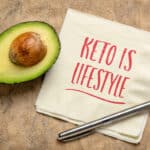Keto Diet for Vegans: Challenges and Solutions
The ketogenic diet, or keto diet for short, has gained immense popularity in recent years as a weight loss and health management tool. However, for vegans, the keto diet can pose some unique challenges. In this article, we’ll explore the difficulties vegans may face when attempting a keto diet and provide specific solutions to help you succeed. We’ll also link to medical resources for credibility and ensure you have all the information you need to make informed decisions about your health.
Understanding the Keto Diet
Before diving into the challenges and solutions for vegans, it’s essential to understand the basics of the keto diet. The ketogenic diet is a high-fat, low-carbohydrate diet that aims to put your body into a state of ketosis. Ketosis is a metabolic state where your body burns fat for fuel instead of carbohydrates. This can lead to weight loss, improved mental clarity, and increased energy levels.
Typically, a keto diet consists of 70-80% fat, 15-25% protein, and 5-10% carbohydrates. For most people, this means consuming a lot of meat, dairy, and eggs, which are naturally high in fat and low in carbohydrates. However, for vegans who abstain from animal products, finding suitable high-fat, low-carb food sources can be challenging.
Challenges for Vegans on a Keto Diet
1. Limited Protein Sources
One of the main challenges vegans face when attempting a keto diet is finding adequate protein sources. Many plant-based protein sources, such as beans and legumes, are also high in carbohydrates, making them unsuitable for a keto diet. Additionally, some vegan protein sources, like tofu and tempeh, can be relatively high in carbs, making it difficult to stay within the recommended carb limits.
2. Difficulty Meeting Fat Requirements
Another challenge for vegans on a keto diet is meeting the high-fat requirements. While there are plenty of plant-based fats available, such as avocados, nuts, and seeds, these sources can also be high in carbohydrates. This can make it difficult for vegans to consume enough fat without going over their carb limits.
3. Nutrient Deficiencies
Vegans on a keto diet may also be at risk for certain nutrient deficiencies. For example, vitamin B12 is primarily found in animal products, and vegans may need to supplement their diet to ensure they’re getting enough. Additionally, a vegan keto diet may be low in omega-3 fatty acids, which are essential for brain health and can be found in fatty fish and some plant sources like flaxseeds and chia seeds.
Solutions for Vegans on a Keto Diet
Despite these challenges, it is possible for vegans to successfully follow a keto diet with some careful planning and consideration. Here are some solutions to help you overcome the obstacles and maintain a healthy vegan keto lifestyle.
1. Choose Low-Carb Plant-Based Protein Sources
To meet your protein needs while staying within your carb limits, focus on low-carb plant-based protein sources. Some options include:
– Seitan: Made from wheat gluten, seitan is a high-protein, low-carb vegan meat substitute. Just be cautious if you have gluten sensitivities.
– Nutritional yeast: This deactivated yeast is a complete protein and can be added to various dishes for a cheesy flavor.
– Low-carb protein powders: Vegan protein powders made from pea, hemp, or brown rice can help you meet your protein needs without adding too many carbs.
2. Prioritize High-Fat, Low-Carb Plant Sources
To meet your fat requirements, focus on high-fat, low-carb plant sources. Some options include:
– Coconut oil: This versatile oil is high in medium-chain triglycerides (MCTs), which can help promote ketosis.
– Avocado: High in healthy monounsaturated fats, avocados are a keto-friendly vegan staple.
– Olives and olive oil: Rich in heart-healthy fats, olives and olive oil can be used in various dishes to boost your fat intake.
3. Supplement Wisely
To avoid nutrient deficiencies, consider supplementing your vegan keto diet with essential nutrients. Some supplements to consider include:
– Vitamin B12: As mentioned earlier, vegans may need to supplement with vitamin B12 to ensure they’re getting enough of this essential nutrient.
– Omega-3 fatty acids: Consider taking an algae-based omega-3 supplement to support brain health and reduce inflammation.
– Electrolytes: A keto diet can cause an initial loss of electrolytes, so supplementing with sodium, potassium, and magnesium can help maintain proper hydration and prevent muscle cramps.
4. Plan Your Meals
Planning your meals in advance can help ensure you’re meeting your macronutrient and micronutrient needs while staying within your carb limits. Use online resources, like vegan keto blogs and cookbooks, to find recipes and meal plans that suit your tastes and preferences.
5. Monitor Your Progress
Regularly track your food intake, ketone levels, and overall health to ensure you’re staying on track with your vegan keto diet. This can help you make adjustments as needed and ensure you’re getting the best results possible.
Conclusion
While a vegan keto diet can pose some unique challenges, it is possible to overcome these obstacles with careful planning and consideration. By choosing low-carb plant-based protein sources, prioritizing high-fat, low-carb plant sources, supplementing wisely, planning your meals, and monitoring your progress, you can successfully follow a keto diet while maintaining your vegan lifestyle. Remember to consult with a healthcare professional before making any significant changes to your diet, and always prioritize your overall health and well-being.



